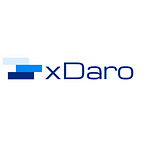The Bahamas might be known more as one of the first countries to issue a Central Bank Digital Currency and less as a FinTech hub. In this blog, we will talk about both and why it is significant to follow the future innovations from one of the most prosperous countries within the Caribbean Region.
Bahamas’ FinTech Development
The FinTech industry is still in development in the Bahamas. Due to its cooperation with the US and other Caribbean countries, the Bahamas has a competitive advantage towards creating a FinTech hub in the region.
The Central Bank of Bahamas has held multiple seminars on Blockchain, DLT, and FinTech overall during the past years. It has analyzed the Covid-19 impact on the development of the FinTech industry and CBDC. Various companies and start-ups, together with the central bank, take the initiative of educating the public and raising interest. By doing so, they motivate more and more entrepreneurs to enter the FinTech community.
Bahamas’ CBDC
The Central Bank of Bahamas set out the development and launch of the CBDC — Sand Dollar. It is one of the critical milestones for future FinTech development in the country and the region. At the end of 2019, the Central Bank launched the Sand Dollar pilot project. Not a year went by, and the government set out legislation and regulations so that the Sand Dollar would launch in October 2020. And it did!
Now, the digital version of the Bahamian dollar is available for both wholesale and retail applications. Wholesale application restricts usage to payments settlements at the inter-bank level, while the proposed retail application would also allow the general public to make and receive digital payments.
More about the Sand Dollar project, you can find on the official website.
Who regulates the industry?
At the end of last year, the Bahamas government passed new regulations: Financial and Corporate Service Providers Regulations and the Financial and Corporate Service Providers Act. These regulations are overseen by the regulatory authority: Securities Commission of the Bahamas (SCB).
Previously, there were service providers licensed and unlicensed by the Central Bank, creating a lack of legal clarity. The new legislation covers a significant part of the non-bank financial services activities and brings greater focus on customer protection and safeguarding the public.
Sources:
Central Bank of the Bahamas
Article by LaMont Astwood
Sand Dollar
International Investment
